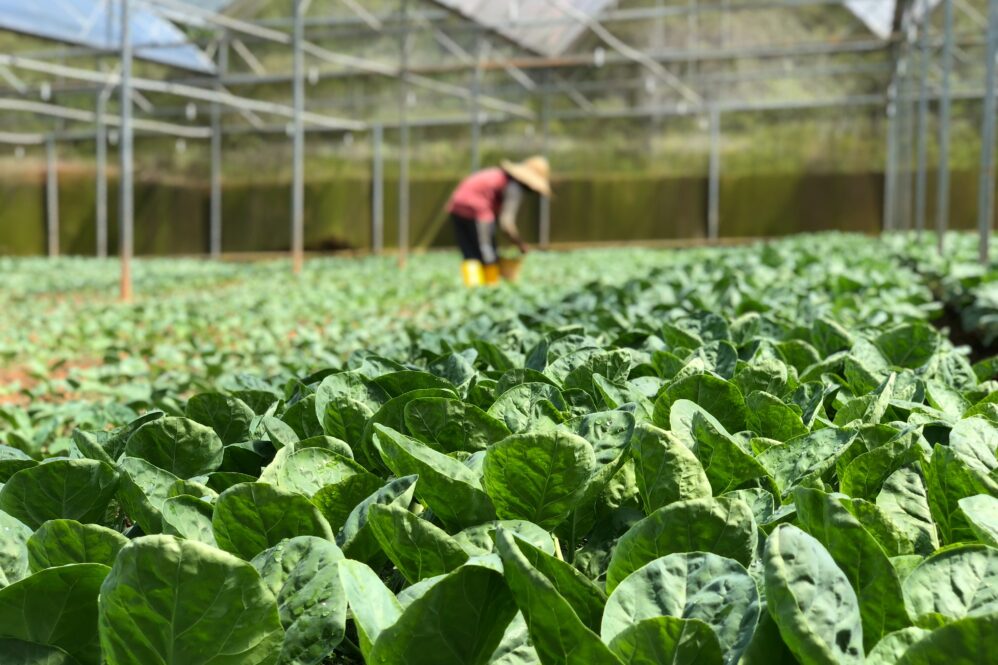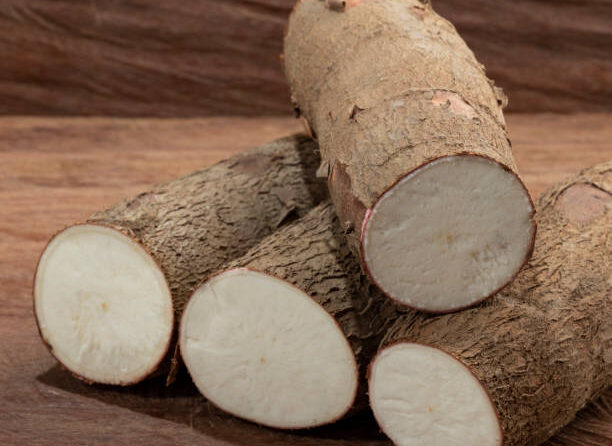Nigeria has a large and diversified agricultural industry that provides several investment prospects for new agribusiness. Nigeria’s agriculture industry has grown significantly in recent years, owing to rising demand for food and Agricultural goods, favorable government regulations, and technological improvements.
Agribusiness is the production, processing, and distribution of agricultural products. It includes a variety of industries like agricultural and animal farming, fishing, forestry, and agro-processing. Investing in agriculture is a feasible alternative for new investors seeking successful companies that benefit society.
This blog article will outline five potential agriculture options in Nigeria that you should be aware of. These prospects have a successful track record and may provide novice agricultural investors with a strong basis for their investment portfolio. For each opportunity, we will examine market demand, major success criteria, investment needs, and possible rewards. By the conclusion of this article, you will have a better grasp of the Nigerian agricultural industry and the ability to make informed investment choices.
- Poultry Farming
Poultry farming is one of Nigeria’s most profitable agriculture options. With a population of over 200 million people, Nigeria is Africa’s biggest consumer of chicken goods, creating a significant demand for poultry products. Nigeria’s poultry business is underdeveloped, creating substantial investment potential for new agricultural investors.
There are a few critical success aspects to consider while starting a poultry farm in Nigeria. To begin with, you must invest in high-quality chicken breeds, which may be obtained from reputed hatcheries in Nigeria or elsewhere. Second, you’ll need to grasp the poultry’s feed and nutrition needs, which will assist to ensure their health and production. Third, you must have a solid distribution network to ensure your items reach the market and produce income.
Starting a poultry farm in Nigeria might cost anywhere between N500,000 and N5,000,000, depending on the size of the enterprise. Profits might range from 30-50% yearly making the potential returns large.
Overall, chicken farming in Nigeria is a very successful economic option with substantial potential for new agricultural investors.
2. Cassava Farming and Processing
Cassava is a root crop grown and eaten extensively in Nigeria. It is a primary staple food and a key element in different foods such as garri, fufu, and cassava flour. Cassava planting and processing provide new agricultural investors in Nigeria with an appealing investment opportunity.
Cassava Farming and Processing in Nigeria: An Overview
- Cassava cultivation is popular across Nigeria, particularly in the south.
- Cassava is a low-risk crop to farm since it takes minimal effort and can thrive in different soil types.
- Cassava processing includes peeling, grinding, fermenting, pressing, and drying cassava roots to generate garri or cassava flour for sale in local and international markets.
Market Demand for Cassava Products in Nigeria:
- Cassava product market demand in Nigeria is high owing to the vast population and popularity of cassava-based food items.
- Cassava is also used to make animal feed, industrial starch, and ethanol, which opens up new market potential.
Major Success Factors for Cassava Farming and Processing in Nigeria:
- Adequate land for cassava agriculture, as well as processing facilities
- Easy access to high-quality cassava stems for growing Efficient and low-cost processing processes
- Effective marketing and distribution strategies to reach both domestic and international customers
Cassava Farming and Processing Investment Requirements and Potential Returns:
- The investment requirements for cassava farming and processing in Nigeria vary depending on the magnitude of the activity.
- A small-scale cassava farming and processing company can be established with roughly N500,000 ($1,200), but a large-scale enterprise can cost up to N20 million ($48,000).
- Depending on the size of the business, market demand, and production efficiency, potential returns on investment in cassava growing and processing might vary from 30% to 70%.
New agricultural investors may capitalize on a profitable market opportunity and help the growth of Nigeria’s agribusiness industry by investing in cassava growing and processing.
3: Fish Farming
Fish farming is a viable agribusiness possibility in Nigeria owing to the country’s strong demand for fish. Nigeria is one of Africa’s top fish importers, paying billions of dollars yearly to buy fish from other nations. However, there is a rising demand for locally produced fish, this presents a massive potential for new agricultural investment.
An Overview of Nigerian fish farming
Fish farming is the practice of breeding and rearing fish in ponds, tanks, or cages. In Nigeria, the most widely farmed fish species are tilapia, catfish, and titus. Depending on the money and resources available, fish farming may be on a small, medium, or large scale.
Nigerian fish market demand
Fish is a major source of protein for Nigerians, and fresh, frozen, and smoked fish products are in great demand. Nigeria’s demand for fish products has increased due to rising population, urbanization, and changing dietary choices. The rising food business, which includes restaurants, hotels, and catering services, is also driving demand for fish products.
Major success factors for Nigerian fish farming
To be successful in fish farming, the following aspects must be considered:
1. Site selection: For successful fish farming, a suitable site with access to water sources, high soil quality, and closeness to the market is important.
2. Fish stock quality: Choosing high-quality fingerlings or young fish is critical for healthy and rapid development.
3. Feeding and nutrition: A balanced and nutritious diet is vital for the fish’s development and well-being.
4. Disease management: Because fish are sensitive to different illnesses, adequate disease management measures are required to reduce the risk of infection and mortality.
Investment Requirements and potential returns
The cost of establishing a fish farm in Nigeria is determined by the size of the output and available resources. The initial expenditure may involve purchasing property, building ponds or tanks, and purchasing fish stock and feed. Fish farming, on the other hand, can be a successful venture in Nigeria with potential returns ranging from 50% to 100% in 6-8 months with competent management.
Finally, fish farming is a viable agricultural option in Nigeria because of the strong demand for fish products. New agricultural investors may capitalize on this opportunity and reap big rewards by examining the success criteria and investing in quality inputs.
4. Snail Farming
Snail farming also known as heliciculture, is a very simple and profitable agricultural option in Nigeria. Snails are considered a delicacy in many Nigerian communities and are in great demand throughout the year.
What you need to know about snail farming is as follows:
- Snail farming is breeding snails for human food or other purposes like making snail slime for cosmetics and medicine.
- The Nigerian snail market is massive, with demand far exceeding supply.
- Snail meat provides vital amino acids, it is high in protein and low in fat, making it a healthier alternative to red meat.
Major Success Factors for Snail Farming in Nigeria
- Snails need little initial investment and have minimal operating expenses and can be reared in tiny places.
- Snails are simple to care for since they need minimal attention and food.
- Snails reproduce quickly and have a large reproductive capacity, with a female snail capable of depositing up to 100 eggs yearly.
- Because snails can be reared all year, it provides a year-round source of revenue.
Investment Requirements and Potential Returns
- Depending on the size of the enterprise, snail farming can be started with minor capital investment.
- Initial expenditures include snail stock, housing, feed, and equipment.
- Snails mature in about six months and can be sold for as much as N500 per snail.
- Snail farming has a high potential return on investment, with a single snail capable of generating up to 100 offspring yearly.
5. Maize Farming and Processing
Maize, usually known as corn, is one of Nigeria’s most extensively farmed crops. It is a primary food crop and a raw ingredient for different culinary and industrial goods such as animal feed, ethanol, and starch. Maize growing and processing may be a lucrative economic option for new agricultural investors in Nigeria.
Nigerian Maize Farming and Processing Overview:
- Maize is cultivated across Nigeria, with Kaduna, Katsina, Kano, Jigawa, Plateau, and Niger producing the most.
- Depending on available resources and investment capability, maize farming can be done on a big or small scale.
- Maize processing entails washing, drying, and milling the maize to produce flour or other byproducts.
Market Demand for Maize Products in Nigeria:
- Maize is a major dietary staple in Nigeria and is eaten in different forms like pap, tuwo, and porridge.
- Maize is also a key source of animal feed in Nigeria’s livestock sector.
- Maize is used as a raw material in the industrial sector to make ethanol, starch, and other goods.
Major Success Factors for Maize Farming and Processing in Nigeria:
- Proper land preparation and variety selection for the particular site.
- Soil fertility control with organic or inorganic fertilizers.
- Efficient pest and disease management.
- Effective post-harvest handling and storage of maize to avoid losses and preserve quality.
- Access to consistent markets for maize goods.
Investment Needs and Potential Returns:
- The investment needs for maize cultivation and processing are determined by the size and complexity of the business.
- Inputs like seeds, fertilizers, and labor might cost between N100,000 and N500,000 for a small-scale maize farm.
- Large-scale maize cultivation and processing businesses may cost millions of Naira in land, equipment, and processing facilities.
- Depending on market pricing, output, and production costs, the prospective returns on investment for maize growing and processing might vary. A well-managed maize farm may provide a 30% to 50% return on investment.
Finally, maize farming and processing might be a viable economic option for new agricultural investors in Nigeria. Maize cultivation and processing, with the correct investment and management, may offer a consistent source of income while also contributing to food security and economic development in Nigeria.
Conclusion
We have discussed five lucrative agriculture options in Nigeria. In the Nigerian agribusiness industry, poultry farming, fish farming, cassava farming and processing, snail farming, and maize farming and processing are all feasible investment opportunities.
We’ve spoken about the market need for each of these agricultural prospects in Nigeria, as well as critical success criteria, investment requirements, and possible returns. It is crucial to remember that there are other lucrative and worthwhile agriculture options in Nigeria.
Before investing in any agribusiness venture, it is critical for a novice agricultural investor to undertake comprehensive research and seek expert assistance. Agribusiness investment in Nigeria may be a profitable and sustainable long-term venture with a proper investment plan, market understanding, and management standards.
We advise you to investigate further agribusiness prospects in Nigeria and capitalize on the tremendous potential of the Nigerian agricultural industry.












